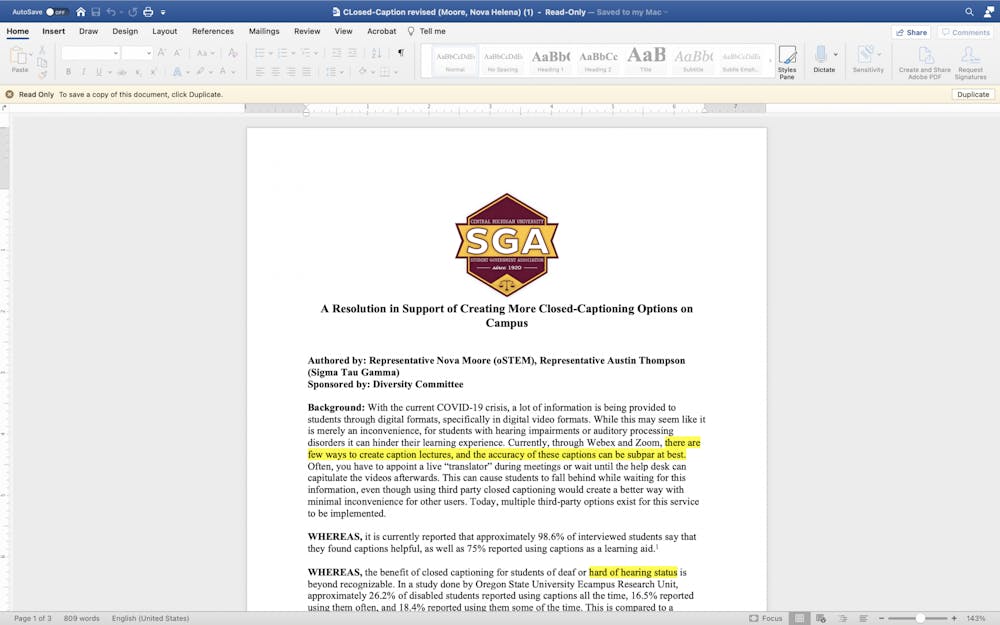Students further debate legislation, none passed

A screenshot of the revised closed captioning legislation that made its way through SGA House and Senate during an SGA meeting over Webex on Feb. 8, 2020.
Legislation is on the horizon as the closed captioning and programs for LGBTQ and disabled students pieces were discussed during a Student Government Association meeting on Feb. 8, 2021.
SGA's House voted no on the LGBTQ and disabled students program legislation. This was to let the author, SGA Representative Nova Moore, to create two pieces of clearer legislation, said SGA Representative Taylor Dibble in motioning for the vote. The closed captioning legislation was tabled in both the House and Senate.
The closed captioning legislation was changed to include a company that could provide accurate transcription for lectures at an "affordable and competitive rate."
"Video Caption Corporation is a third party closed captioning service that boosts a 99% accuracy rate for human generated closed captioning," the legislation read. "Their website states that they have worked with schools before, such that they would have no trouble transitioning into a college setting."
Though students supported the change, Senator Ramiro Garcia said that the mentioning of recording lectures further in the legislation had ethical problems.
"I know there are a lot of professors that don't want their lectures to be recorded and then posted," Garcia said. "This piece still needs work."
House and Senate tabled the closed captioning legislation.
The legislation on expanding access to LGBTQ and disabled students had students largely in support, but Dibble said that it would work better as two pieces.
"That way we could make the legislation more specific as to what we want to see in this programming," Dibble said.
In the legislation, a change was made to turn the IMPACT-esque program into a student mentorship program for LGBTQ students, and a day-long orientation for disabled students.
The student mentorship program was intentionally left vague so the office on LGBT student equity long long long could have more flexibility, Moore said.
"It allows [the office] to create the mentorship program however they like," Moore said.
The SGA House voted no to let Moore separate the legislation. In the Senate, SGA Senator Sarah Gum said that she agreed with the House's decision, which led to the legislation being tabled.
Other business
Faculty member Jerry Todd presented an upcoming feature to Central Michigan University's technology — multi-factor identification. It works "essentially" like the Google two-factor identification, in which the user must allow a log-in on their phone when they type in their password, Todd said.
The election packet is now up on SGA's Engage Central page. It contains a guide and schedule to the upcoming SGA elections.






